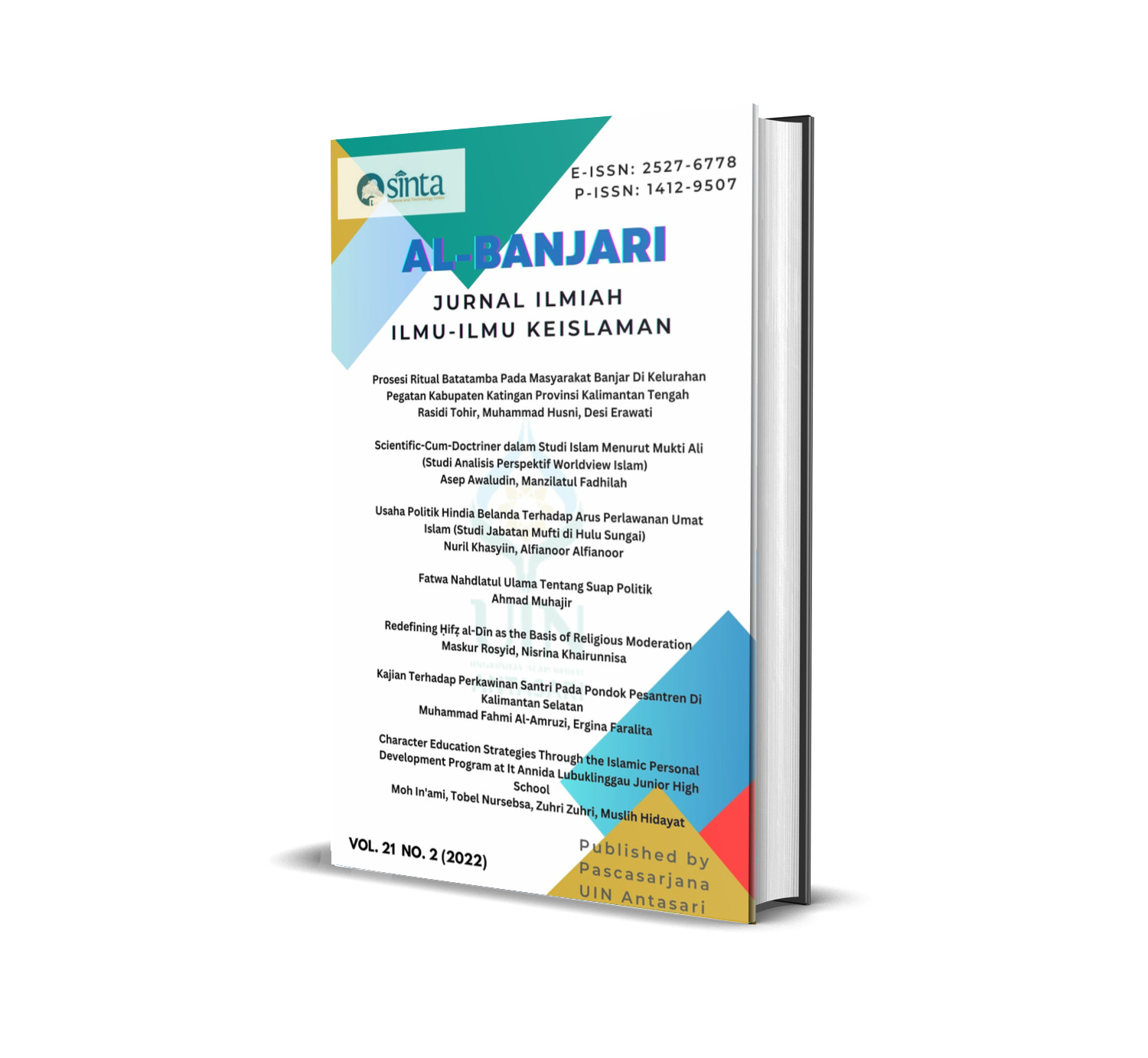Character Education Strategies Through the Islamic Personal Development Program at It Annida Lubuklinggau Junior High School
DOI:
https://doi.org/10.18592/al-banjari.v21i2.7377Keywords:
Islamic Personal Development, Education, CharacterAbstract
The purpose of the study is to determine the strategy of character education through the Islamic personal development (BPI) program in shaping the personality of students. The research approach is skin research. The effectiveness of the research used is phenomenology which examines how the implementation of the Islamic personal development program. The concept of purposeful sampling is used in qualitative research where the researcher selects individuals and research locations for a study because these choices can provide information to answer the researcher's problems. The samples and participants of the study were principals, vice principals, BPI chief coordinators, and BPI teachers. Data collection with interviews, observations, and documentation. The results showed that SMP IT Annida Lubuklinggau has carried out a character formation strategy for students by making habituation and exemplary program, this is a good character building so that students are more religious and always apply discipline. SMP IT Annida Lubuklinggau applies character education based on good habituation. Starting from coming to school to returning home from school, even when at home, it is still implemented. The Islamic personal development program evaluates the activities of students daily starting with their worship, attitudes, and other activities that have been received by students from the results of BPI activities.Downloads
Published
2022-12-16
Issue
Section
Articles
License
Authors who publish with this journal agree to the following terms:
- Authors retain copyright and grant the journal right of first publication with the work simultaneously licensed under a Creative Commons Attribution License that allows others to share the work with an acknowledgement of the work's authorship and initial publication in this journal.
- Authors are able to enter into separate, additional contractual arrangements for the non-exclusive distribution of the journal's published version of the work (e.g., post it to an institutional repository or publish it in a book), with an acknowledgement of its initial publication in this journal.
- Authors are permitted and encouraged to post their work online (e.g., in institutional repositories or on their website) prior to and during the submission process, as it can lead to productive exchanges, as well as earlier and greater citation of published work (See The Effect of Open Access).


































